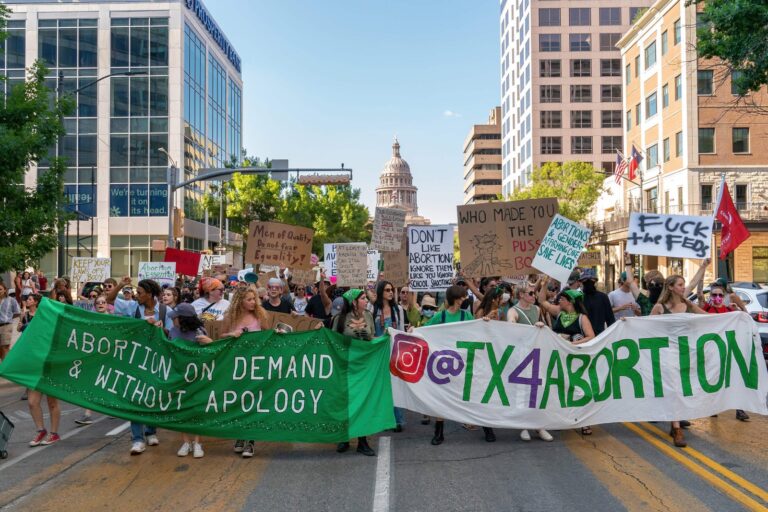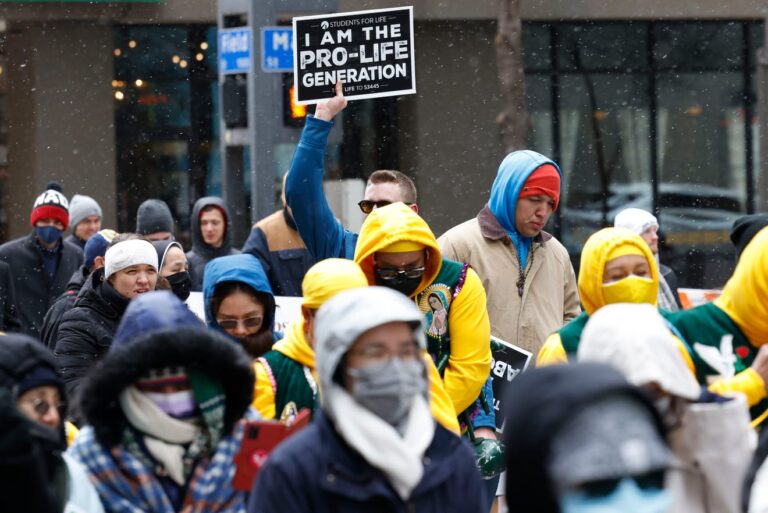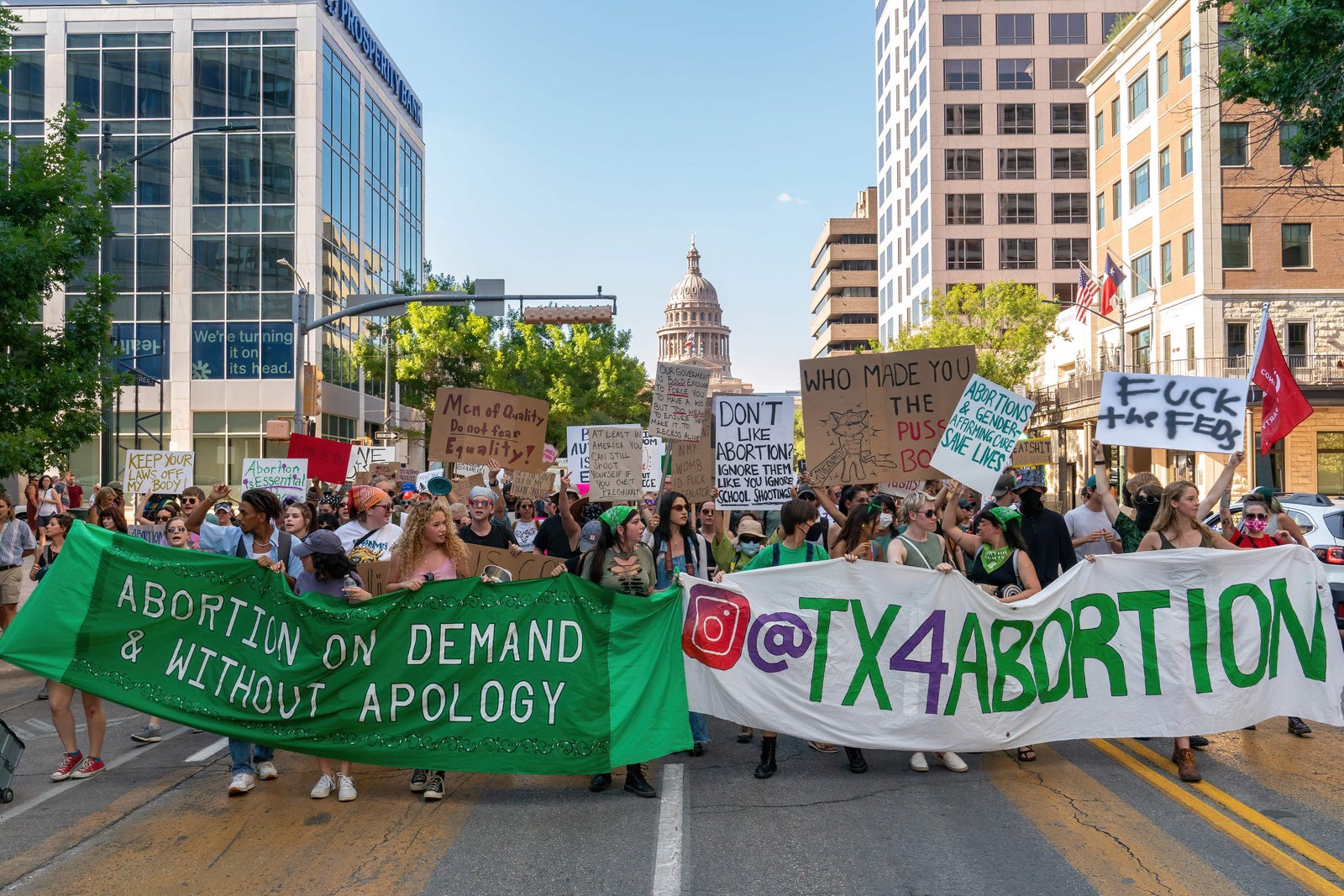We need to vote for state judges who will protect abortion
More of This

Melissa Price Kromm is the executive director of N.C. Voters for Clean Elections, North Carolina’s leading voice for returning power to citizens and lessening the corrosive influence of special interests in state politics.
After a term in which the Supreme Court purported to return the issue of abortion and other central questions to the states, America’s state courts have never been more important. As I’ve written previously, they’ve also never been more at risk. In the past year alone, state judges have stopped extremist politicians from putting up barriers to voting, defended education funding, and ruled in favor of LGBTQ rights. Courts are now set to decide key questions on abortion rights in states like Florida, Wisconsin, and Michigan. This responsibility could not be greater.
But with great power comes greater audacity from wealthy special interest groups looking to take control of state judiciaries, and 2022 could be their best chance yet. More than 80 state supreme court seats in 32 states are up for election this November. Unlike other, generally more expensive contests for governor and state legislature seats, judicial elections offer serious bang-for-buck for dark money groups that have invested accordingly.
Read the story on Slate
Progressive prosecutors won’t be able to keep women who have abortions out of jail
Speaking Of…

In the wake of the Supreme Court’s decision in Dobbs v Jackson Women’s Health Organization, 90 elected prosecutors signed a letterwritten by the reform-minded Fair and Just Prosecution pledging to refuse to proscute “those who seek, provide, or support abortions.”
While 90 prosecutors is just a fraction of the more than 2,000 district attorney offices across the country, the signatories represent some of the most populous places in the U.S., with about 40 to 50 million Americans living in their districts. In many cases, these district attorneys serve in states like California, Illinois, and New York that are unlikely to criminalize abortion. But about 25 percent of all Texans live in counties whose prosecutors signed on to the letter, and likewise about 20 percent of those who live in Georgia. Not to mention that doctors in these counties could provide services to those in nearby counties, expanding the reach of the refusal to prosecute.
But the grim post-Dobbs reality is not a story of prosecutorial power; instead, it sheds light on the broader limitations inherent in relying on prosecutors as engines of criminal legal reform, which remains the caseeven in fairly liberal, progressive cities.
Read the story on Slate
The lawyer who took down Roe is coming after gay marriage next
Less of This

If Jonathan Mitchell were a comic book character, he would be drawn holding a lawbook in one hand and in the other, a sledgehammer.
Best known as the architect behind Senate Bill 8, the state law that deputizes everyday Texans as abortion bounty hunters, Mitchell has spent years arguing that the U.S. Supreme Court should reverse its decision in Roe v. Wade. His legal theories and court cases helped lay the groundwork onto which the ruling came toppling down.
But as the rest of the country was bracing for the fall of Roe, Mitchell was already moving on. Since opening up a one-man legal shop in Austin four years ago, he has jumped headlong into myriad other lawsuits over everything from the contraceptive mandate to affirmative action and same-sex marriage.
Mitchell says his goal is to systematically dismantle decades of rulings he believes depart from the language of the U.S. Constitution or that impose constitutional rights with no textual basis. With the Supreme Court moving ever more his way, the cases he brings may be a bellwether for the direction of the nation’s legal establishment, and, by extension, the nation itself.
Read the story on Detroit News
SCOTUS threatens California’s democracy
Say it Louder

Duncan Hosie is a civil rights lawyer and writer.
The Supreme Court is out of control. Over a two-week stretch in June, the court’s conservative justices overturned Roe v. Wade and expanded the right to carry a gun outside the home. They gutted Miranda rights, which protect criminal defendants from coercive police practices. They weakened federal authority to fight global warming, possibly dooming a global effort to cut carbon emissions enough to forestall the worst ravages of climate change. They upheld a Louisiana districting scheme that disenfranchises Black voters and let Oklahoma undermine Native American sovereignty. In a coup de grâce, they issued not one but twodecisions that erode the separation of church and state.
While it will take time to fully unpack this constitutional avalanche, something is clear already: These rulings are not just a disjointed hodgepodge of conservative ambitions. They represent a systematic effort to undermine democracy in blue states like California.
Consider the Supreme Court’s decision to strike down a New York law restricting the public carrying of guns. In the short-term, the reckless ruling will force California to rescind and rewrite popular gun control statutes. During an epidemic of mass shootings and gun violence, the court has forced California to abandon popular policies that keep people safe.
Read the Story on SF Chornicle
ChangeLawyers Scholarship now open
If selected as a scholar, you will receive a $7,500 cash award scholarship and exclusive access to programming, mentorship, and on-going support.
Apply by July 18 >









